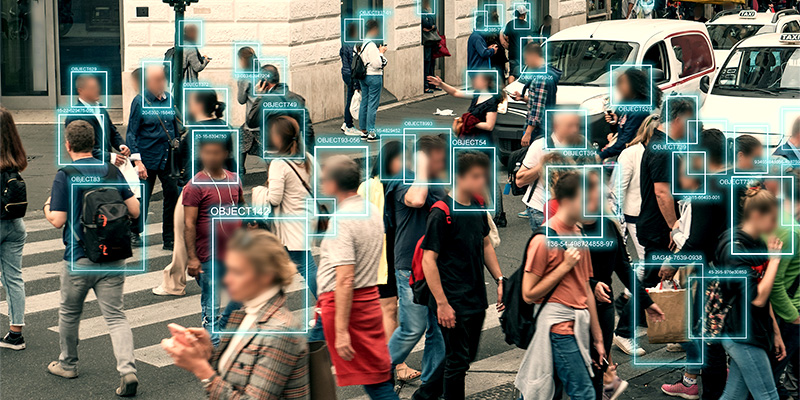
How Artificial Intelligence is Revolutionizing Video Surveillance, Access Control, and the Physical Security Industry
From Reactionary to Preventative Security with AI
The presence of artificial intelligence in our society has skyrocketed in the last few years and is reshaping the way we work and live. When it comes to the physical security industry, AI technology has already made incredible improvements in self-learning analytics and system integrations. As we look to the future, AI will continue to increase the operational efficiencies of security and IT teams with real-time threat detection and automated processes, autonomously sending alerts and responding to threats, all without human intervention. With the help of AI, we will see a shift from reactionary to preventative security, leading to efficient decision-making, faster investigations, and safer environments in which we live, work, and play.
AI in Current Physical Security Systems
At its core, AI involves the development of intelligent algorithms capable of learning and making decisions based on data. In the context of physical security, AI has found its way into video surveillance, access control, and other security solutions, enhancing their capabilities and effectiveness.
AI has made significant advancements in video surveillance analytics. Traditional video surveillance systems rely on human operators to monitor hours of footage, which can be tedious and prone to errors. But AI-powered video analytics can automate the detection of suspicious activities, objects, and behaviors. These intelligent algorithms are able to analyze video streams in real-time, instantly flagging potential threats such as loitering and perimeter breaches, and sending alerts to security and IT personnel. For example, Avigilon’s Appearance Search includes a feature that allows users to quickly locate a specific person or vehicle across vast amounts of recorded footage, saving time and resources in investigations. This not only improves the accuracy and speed of threat detection but reduces the burden on security teams.
In the realm of access control, AI has brought about major improvements as well. AI algorithms can now facilitate more sophisticated identification and authentication processes, such as facial recognition and behavioral biometrics. Facial recognition, for instance, enables quick and accurate identification of people of interest, accelerating response times and helping to proactively respond to events. The integration of AI algorithms in access control systems not only improves security but offers scalability for organizations with varying security needs.
AI and Security Systems Integration
Physical security is not limited to individual systems but involves the integration of multiple components to create a comprehensive security framework. AI plays a vital role in security systems integration, enabling the analysis and correlation of data from various sources.
With AI, security systems can process data from video surveillance, access control, and intrusion detection systems to provide a holistic view of security incidents. By analyzing data from multiple sources simultaneously, AI algorithms can identify patterns and anomalies that might go unnoticed by human operators. This real-time analysis allows for faster threat detection and response, enhancing overall security effectiveness.
Real-world examples of AI-powered security systems integration showcase the potential of this technology. For instance, AI can integrate video analytics with access control systems to create a more intelligent and proactive security environment. If an unauthorized individual is detected by the video analytics system, an immediate alert can be sent to the access control system, preventing the person from gaining further access to restricted areas. This seamless integration significantly strengthens security measures and reduces the risk of security breaches.
The Future of AI in Physical Security
As we look ahead, the future of AI in physical security is exciting. Emerging trends and advancements indicate that AI will continue to shape the field, further improving threat prevention and incident response.
Predictive analytics powered by AI is an area with immense potential. By analyzing historical data and patterns, AI algorithms can anticipate security threats before they occur. This proactive approach allows security personnel to take preventive measures and minimize potential risks.
The integration of AI with emerging technologies like the Internet of Things (IoT) devices, drones, and robotics further expands the possibilities in physical security. IoT devices can provide a wealth of data that AI algorithms can analyze to enhance situational awareness and response. Drones equipped with AI can autonomously patrol areas, detect anomalies, and transmit live video feeds to security operators. Robotics integrated with AI can augment security teams by performing tasks such as perimeter surveillance, reducing the risk to human personnel.
While AI offers tremendous potential, it is crucial to address ethical and privacy concerns. The use of facial recognition and other biometric data raises apprehensions about individual privacy and potential misuse. Responsible implementation of AI in physical security must take these ethical considerations into account and ensure that the use of AI does not compromise individual rights.
Embracing the Power of AI
As we move forward, it will be vital to stay informed about the latest advancements in AI for physical security and advocate for responsible implementation. AI-powered security systems have the potential to significantly enhance threat prevention, incident response, and overall safety, creating a future where physical security systems are more intelligent, efficient, and capable than ever before.
